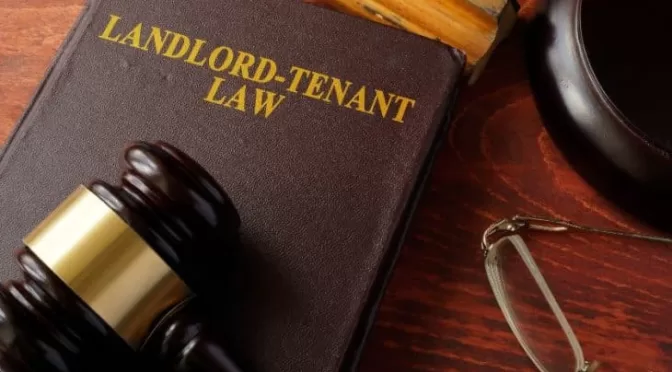I. Introduction
When it comes to legal proceedings, preparation is the key to success. This is particularly true for a child support hearing in Massachusetts. This blog post will serve as your comprehensive guide, providing you with essential steps in preparing for your child support hearing.
Understanding the ins and outs of a child support hearing can be overwhelming. However, arming yourself with the right information can make the process less intimidating. Whether you are the one seeking child support or the one expected to provide it, knowing what to expect and how to prepare can significantly influence the outcome.
II. Understanding Child Support Laws in Massachusetts
Massachusetts child support laws are designed with the child’s best interests in mind. They ensure that all children receive the financial support they need from both parents. Understanding these laws is the first step in preparing for your child support hearing.
The laws take into account several factors including:
- The income of both parents
- The number of children involved
- The living arrangements of the children
Knowing these factors will help you understand how child support amounts are determined in Massachusetts. This knowledge can provide you with a solid basis for your case.
However, it’s important to remember that child support laws can change. What was accurate a few years ago may not be the case today. Staying updated on these laws is crucial.
III. The Role of Reeves Lavallee PC in Child Support Cases
Reeves Lavallee PC is a reputable law firm based in Worcester, Massachusetts, with a wealth of experience in handling child support cases. Our team of dedicated legal professionals understands the intricacies of Massachusetts child support laws and is committed to guiding you through every step of the process.
Our role in preparing clients for child support hearings is multifaceted. Firstly, we provide a thorough understanding of the child support laws applicable to your case. This includes explaining how child support amounts are calculated and what factors the court will consider during the hearing.
Secondly, we assist in gathering and organizing all necessary documents for your hearing. This includes income statements, custody agreements, and any other documents that could influence the outcome of your case.
Lastly, we offer guidance on how to present your case effectively during the hearing. From advising on how to interact with the judge and other parties, to helping you prepare your testimony, we are with you every step of the way.
IV. Steps to Prepare for a Child Support Hearing in Massachusetts
Preparing for a child support hearing involves several key steps. Here’s a detailed look at what you need to do:
- Gathering Necessary Documents: The first step in preparing for your hearing is to gather all relevant documents. This includes your income statements, tax returns, childcare expenses, and any other financial documents that can demonstrate your financial situation.
- Understanding Child Support Calculation: In Massachusetts, child support is calculated based on the income of both parents, the number of children involved, and the cost of living. Understanding this calculation can help you anticipate what to expect at the hearing.
- Preparing Your Testimony: Your testimony is a crucial part of the hearing. It’s important to prepare what you will say in advance. Focus on the facts and be prepared to explain your financial situation clearly and honestly.
- Knowing What to Expect During the Hearing: Familiarize yourself with the hearing process. This includes understanding the format of the hearing, knowing who will be present, and being aware of the types of questions you might be asked.
Remember, preparation is key to a successful child support hearing. The more prepared you are, the more confident you’ll feel when presenting your case.
V. Tips for the Day of the Hearing
The day of your child support hearing can be stressful, but these tips can help you navigate it with confidence:
- Arrive Early: Plan to arrive at the courthouse at least 30 minutes early. This gives you time to find the correct courtroom, gather your thoughts, and prepare for the hearing.
- Dress and Present Yourself Appropriately: Dressing professionally for the court is crucial as it shows respect for the court and can help create a positive impression. Opt for business or business-casual attire. Additionally, ensure you are well-groomed and clean for your court appearance. However, it’s advisable to avoid wearing strong perfumes or scents as some people can be sensitive to them. The way you present yourself can significantly impact the judge’s perception of you.
- Interact Respectfully: Treat everyone in the courtroom with respect, including the judge, the opposing party, and court staff. Remember, the way you conduct yourself can impact the judge’s perception of you.
- Present Your Case Effectively: Stick to the facts when presenting your case. Be honest, concise, and clear in your responses. Remember, the judge is there to make a decision in the best interest of the child.
VI. How Reeves Lavallee PC Can Help
Navigating a child support hearing can be complex and emotionally draining. But with Reeves Lavallee PC, you don’t have to face it alone. Our experienced team is here to guide you every step of the way.
Our firm provides comprehensive legal support throughout your child support case. We assist with understanding the intricacies of Massachusetts child support laws, gathering and organizing necessary documents, and preparing your testimony.
We also offer guidance on courtroom etiquette, ensuring you know how to present yourself and interact with all parties involved. Our team is committed to making the process as smooth as possible for you, providing you with the confidence and knowledge you need to handle your hearing effectively.
In addition to preparing you for your hearing, Reeves Lavallee PC also offers post-hearing support. This includes helping you understand the final order and advising on any necessary steps moving forward.
At Reeves Lavallee PC, we understand that every case is unique. We tailor our services to meet your specific needs, ensuring you are well-equipped for your child support hearing in Massachusetts.
VII. Conclusion
Preparing for a child support hearing in Massachusetts can be a complex process, but with the right preparation and guidance, you can navigate it successfully. Understanding Massachusetts child support laws, gathering necessary documents, preparing your testimony, and knowing what to expect during the hearing are all crucial steps in this process.
At Reeves Lavallee PC, we are committed to providing you with the support and guidance you need to prepare for your child support hearing. Our team of experienced legal professionals is here to help you every step of the way, ensuring you feel confident and well-prepared on the day of your hearing.
Remember, the outcome of your hearing can significantly impact your life and the life of your child. Therefore, it’s crucial to take the necessary steps to prepare adequately. We encourage you to reach out to Reeves Lavallee PC for further assistance in preparing for your child support hearing in Massachusetts.









